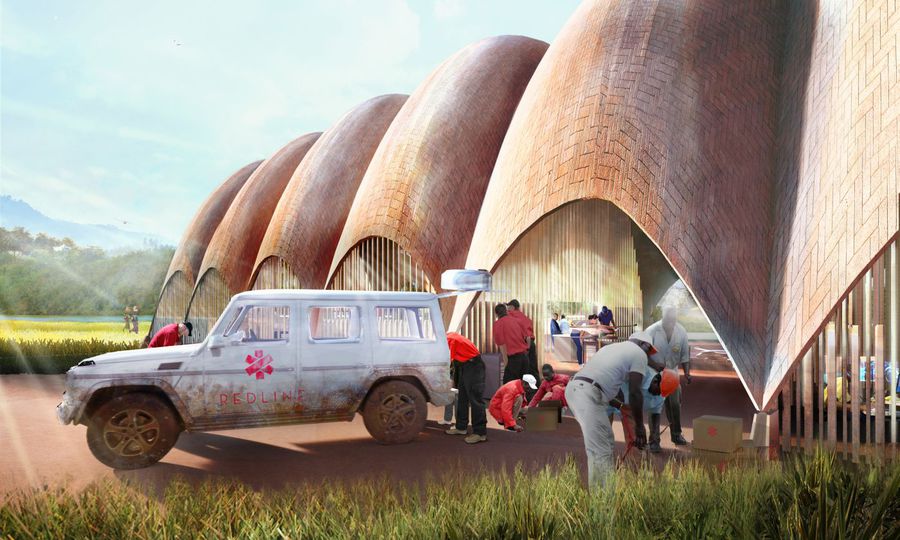Until not long ago the ‘drone’ of the public imagination was an exclusively military machine. We knew them by the trail of destruction they left behind, captured in grainy newsreel footage of remote-controlled explosions in Afghan villages, or by stories of wedding parties in Yemen cut down by bombs.
Today drones have more diverse uses. They are still widely used by the military to survey and kill. But they have positive uses too, tracking forest loss, monitoring devastation caused by natural disasters and identifying refugees in trouble.
But until now this has remained small-scale and specialist — the domain of experts. A new project plans to expand the use of drones into everyday civilian life. The Swiss-based Afrotech project has teamed up with the architecture firm Foster + Partners to launch the world’s first courier drones and drone ports at three sites across Rwanda in 2020.
Afrotech has spent the past few years researching drones for use at massive scale in Africa, a continent ill-connected by roads. For the past couple of years, Afrotech director Jonathan Ledgard has been expounding the power of drones to reshape transport, health and business, and Africa’s potential as a pioneer of cargo drone technology.
Now this vision looks closer to becoming reality – at least in Rwanda. As these images show, Ledgard and Foster’s team envisions drone ports that will transform courier services and healthcare, delivering blood and supplies across the country. The ports will also sit at the heart of communities, becoming economically sustainable hubs of activity where lab technicians and health workers mingle with market traders and ordinary people going about their daily lives. The hope is that cargo drones bring a transport revolution for people in Rwanda and the region – those who need social transformation the most.
Revolution in the air: Airborne cargo drones in Rwanda
Storyline:Science & Tech

This article was originally published on SciDev.Net. Read the original article.